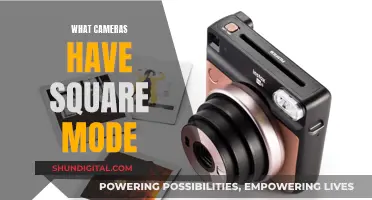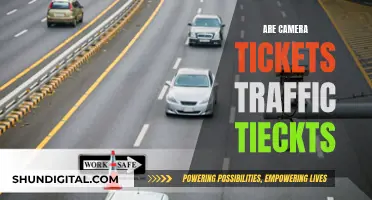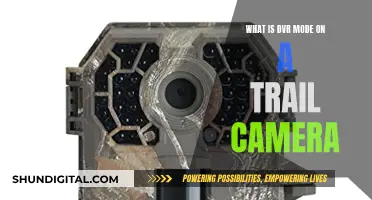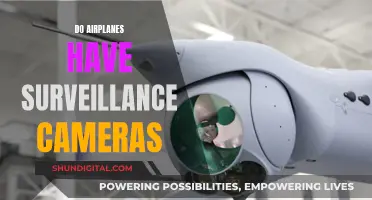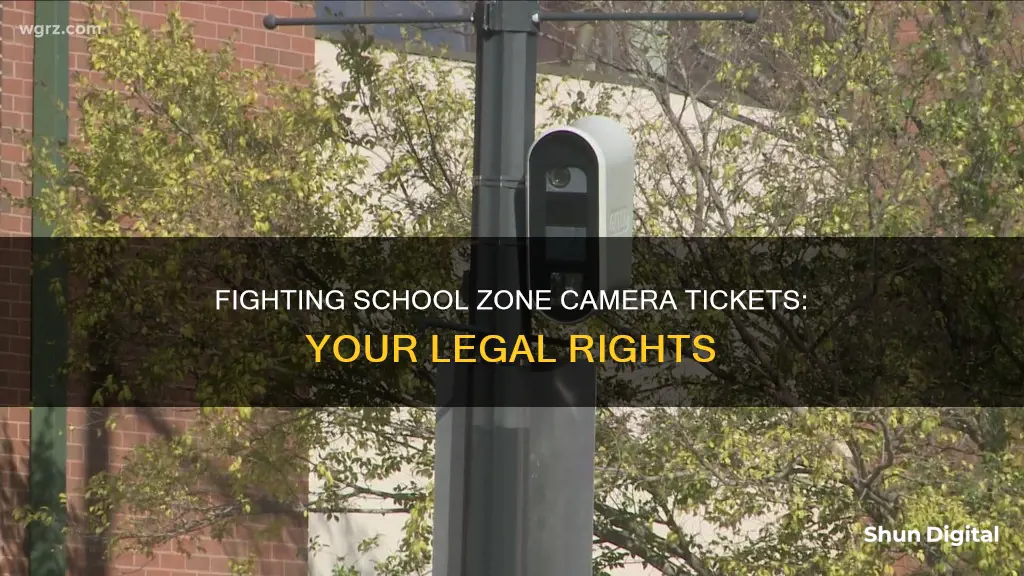
School zone camera speeding tickets are issued when a driver is caught speeding in a designated school zone. These tickets are typically enforced through automated camera systems that capture images of vehicles and their license plates. While the intention behind these cameras is to ensure the safety of children in school zones, there are instances where drivers may receive unjust or inaccurate tickets. It is important to understand your rights when it comes to contesting a school zone camera speeding ticket. By familiarizing yourself with the steps involved and the legal options available, you can effectively fight against an unjust ticket.
| Characteristics | Values |
|---|---|
| Reasons to dispute | Questioning the accuracy of camera equipment, verifying signage and visibility, addressing potential technical errors in the ticket issuance process, or proving the camera malfunctioned |
| Time to dispute | Within 30 days of receiving the ticket |
| Evidence to gather | Photographs or videos of the school zone, road signs, or any other relevant details that can help establish your innocence; witness statements; calibration records of the camera; driving record |
| Local laws and regulations | Maximum speed limit in school zones, criteria for issuing tickets, requirements for the operation and maintenance of the camera systems, procedures for reviewing and approving the ticket, and requirements for notifying the alleged offender |
| Valid defenses | Accuracy of the camera, visibility of the school zone signage, timing and duration of the school zone, driver identification, speedometer calibration |
| Written statement or letter | Understand the allegations, gather evidence, identify valid defenses, craft a persuasive statement, be respectful and professional, proofread and edit |
| Hearing or court appearance | Request a hearing or court appearance, explain your side of the story and present any evidence that supports your defense |
What You'll Learn

Question the accuracy of the camera equipment
If you've received a ticket for a school zone speed violation, you might be able to dispute it by questioning the accuracy of the camera equipment. Here are some steps and considerations to help you through the process:
Firstly, it's important to understand the specific rules and regulations regarding school zone speed cameras in your area. In New York City, for example, speed cameras are required to perform a self-test of their functions on the date of the alleged violation. They also need to undergo annual calibration to maintain precision, and the Department of Transportation (DOT) must certify that the camera was functioning correctly at the time of the incident.
When disputing a ticket, you can request to see the certification from the DOT that confirms the camera was operating properly. This is something you are entitled to see upon request. Additionally, you can ask for maintenance records and seek information about any system errors or anomalies that may have affected the camera's accuracy.
It's worth noting that speed cameras rely on advanced radar and laser technology to measure vehicle speed. As with any technological device, calibration is crucial to ensure reliable and consistent readings. Therefore, questioning the calibration and maintenance of the camera equipment used to capture the alleged offense is a valid strategy.
To strengthen your case, consider gathering evidence that suggests the camera malfunctioned or provided inaccurate readings. This could include seeking dashcam footage from other drivers who may have been in the area at the time of the alleged violation.
Remember, disputing a ticket typically involves following specific procedures and providing supporting documentation. Be sure to research the recommended evidence and gather all the necessary information to support your dispute. Each jurisdiction may have different requirements and processes for disputing tickets, so ensure you are well-informed about the specific rules in your area.
Analog Cameras: Still Relevant, Still Made?
You may want to see also

Prove the camera malfunctioned
To successfully dispute a school zone camera ticket by proving that the camera malfunctioned, you must present valid evidence to support your claim. Here are some steps and strategies to help you build a strong case:
- Obtain Camera Calibration and Maintenance Records: Request access to the records of the specific camera that issued your ticket. These records should include calibration checks, certification documents, and maintenance logs. By carefully reviewing these records, you may uncover discrepancies or errors that indicate the camera was not functioning properly at the time your ticket was issued.
- Analyze Camera Self-Test Results: All speed cameras are required to perform self-tests to ensure they are functioning correctly. Request the self-test results from the date your ticket was issued. If the camera failed the self-test or showed any errors, this can be strong evidence to support your claim of camera malfunction.
- Examine Image Quality: Request clear and high-resolution images or footage captured by the camera. Blurry or unclear images may indicate a malfunction. Additionally, look for any signs of distortion, abnormal lighting, or other anomalies that could suggest the camera was not calibrated correctly or was faulty.
- Compare with Other Evidence: If you have access to other evidence, such as eyewitness accounts, video recordings, or dashcam footage that contradicts the camera's findings, this can help prove a malfunction. For example, if your dashcam footage shows you driving within the speed limit, while the school zone camera claims you were speeding, this discrepancy could cast doubt on the accuracy of the camera.
- Consult an Attorney: Consider seeking legal advice from a speeding ticket attorney or a legal professional specializing in moving violations. They can guide you through the process, help you gather the necessary evidence, and represent you during any hearings or appeals.
- Request an In-Person Hearing: In some jurisdictions, you may have the right to request an in-person hearing to dispute your ticket. This can provide you with an opportunity to present your evidence of camera malfunction directly to a judge or adjudicator.
Remember, the key to successfully disputing a school zone camera ticket due to camera malfunction is to gather as much valid evidence as possible and present a well-supported case. Each case is unique, so be sure to carefully review the specific laws and procedures in your jurisdiction.
The Evolution of Panavision Cameras: A Manufacturing Overview
You may want to see also

Prove the vehicle was reported stolen
If you want to dispute a school zone camera ticket on the grounds that your vehicle was stolen, you must provide evidence to support your claim. This evidence should demonstrate that you reported your vehicle as stolen before the alleged violation occurred and that you had not yet recovered it at the time of the incident.
To prove this, you can submit official documentation, such as a police report detailing the theft and clearly stating the timeline of events. This report should establish that your vehicle was stolen before the date and time of the recorded violation. By providing this evidence, you can build a compelling case for disputing the ticket.
It is important to note that this defence specifically applies when your vehicle was reported stolen and not yet recovered at the time of the offence. If you have already recovered your vehicle before the incident in question, this defence may not be applicable.
In addition to providing evidence of the theft, you may also want to include any other relevant information or documentation that strengthens your case. This could include details about the circumstances of the theft, any communication or reports made to the relevant authorities, and any steps you took to try and locate or recover your vehicle.
Remember to act promptly when disputing a school zone camera ticket. Responding within the specified timeframe, typically within 30 days of receiving the notice of liability, is crucial to avoid additional penalties and consequences.
Charging Your USB Spy Camera: A Quick Guide
You may want to see also

Verify signage and visibility
When disputing a school zone camera ticket, it is essential to verify the signage and visibility of the school zone. This involves assessing the placement, visibility, and condition of the signs indicating the school zone and speed limit. Here are some detailed steps to help you through this process:
- Examine the placement of signs: School zone signs should be placed in a manner that gives drivers adequate notice to reduce their speed. Check if the signs are positioned at a reasonable distance before the school zone and in accordance with local regulations.
- Evaluate the visibility of signs: Ensure that the signs are clearly visible to drivers. Look for any obstructions, such as tree branches, signs, or structures, that may block the view of the signs. Take photographs or gather witness statements to support your claim if the signs were not easily visible.
- Assess the condition of signs: Check the condition of the signs to ensure they are well-maintained and legible. Faded or damaged signs with unclear lettering or speed limit information can be grounds for disputing the ticket. Again, take photographs to support your claim.
- Review local regulations: Familiarize yourself with the local laws and regulations governing school zone signage. These regulations may specify requirements for the size, colour, and placement of signs, as well as minimum visibility standards. Identify any discrepancies between the actual signage and the legal requirements.
- Gather evidence: Collect evidence to support your claim of inadequate signage or visibility. This can include photographs or videos of the school zone, showing the placement and condition of the signs. Witness statements from individuals who can attest to the poor visibility or lack of signage can also be valuable.
- Compare with other zones: Compare the signage and visibility of the school zone in question with those of other school zones in the area. If there are notable differences that may suggest non-compliance with regulations, document this through photographs or statements.
- Review previous violations: Research if there have been previous complaints or disputes regarding the signage and visibility of the same school zone. Look for patterns or trends that indicate a history of inadequate signage, which can strengthen your case.
Remember, when verifying signage and visibility, it is crucial to gather as much evidence as possible to support your claim. This evidence will be essential if you decide to dispute the ticket or request a hearing.
Charging Your SimpliSafe Outdoor Camera: A Quick Guide
You may want to see also

Prove you don't own the vehicle
If you've received a school zone camera ticket for a vehicle you don't own, you can dispute it by proving that you don't own the vehicle in question. Here are some steps you can take to do this:
- Provide evidence of the vehicle transfer: If you have sold, gifted, or otherwise transferred ownership of the vehicle before the ticket was issued, you can use this as a defence. Gather any relevant documentation, such as DMV plate transfer or surrender records, cancelled or transferred insurance documents, or proof that the vehicle was registered to someone else.
- Contact the DMV: Get in touch with your local DMV office and request any records related to the transfer of ownership. They may be able to provide documentation confirming that you are no longer the registered owner of the vehicle.
- Contact your insurance company: Your insurance company may have records of the vehicle transfer, especially if you removed the vehicle from your policy after selling it. They may be able to provide documentation confirming that you are no longer the insured owner of the vehicle.
- Locate the buyer: If possible, try to contact the person or dealership to whom you sold the vehicle. They may be able to provide documentation or other evidence confirming that they are now the owners.
- Gather supporting documentation: In addition to proof of the vehicle transfer, gather any other relevant documentation that can support your case. This may include emails, text messages, or other correspondence related to the sale of the vehicle.
- Submit a dispute: Once you have gathered your evidence, submit a dispute or request for an appeal with the relevant authority. Clearly state your case and provide all the supporting documentation. Follow any specific guidelines or procedures outlined by the authority handling the tickets.
Remember to act promptly when disputing a ticket, as there may be time limits for submitting a dispute or appeal. Keep detailed records of all your communications and submissions, and be prepared to provide additional information or clarification if needed.
Unleashing Camera Raw's Power: From Basics to Advanced Techniques
You may want to see also
Frequently asked questions
You can dispute a school zone camera ticket on the following grounds:
- Questioning the accuracy and calibration of the camera equipment.
- Verifying the signage and visibility of the school zone.
- Providing evidence that the camera malfunctioned.
- Proving that the vehicle in question does not belong to you.
- Proving that your car was reported stolen before the violation occurred and had not been recovered at the time.
To dispute a school zone camera ticket, you should gather the following evidence:
- Photographs or videos of the school zone, road signs, or any other relevant details.
- Witness statements to support your case.
- Calibration records of the camera to demonstrate any potential issues with accuracy.
- Your driving record to demonstrate a history of responsible driving.
If you do not address a school zone camera ticket within the specified timeframe, you may face escalating consequences, including:
- Additional late penalties and accruing interest.
- Having your vehicle booted, towed, or seized.
The process for disputing a school zone camera ticket typically involves the following steps:
- Gathering evidence and reviewing the ticket for any errors or inconsistencies.
- Researching local laws and regulations pertaining to school zone camera tickets.
- Preparing a written statement or letter outlining your defense and relevant evidence.
- Requesting a hearing or court appearance to present your case in person.
- Following up and appealing the decision if the initial hearing does not result in a favorable outcome.


